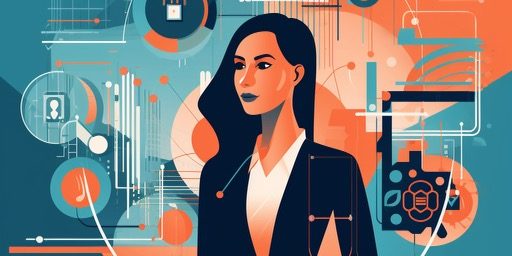The future of AI is here — and it’s more critical than ever that women are a part of the AI journey! The Women Who AI Summit 2023 provided some fascinating insights into what lies ahead for Artificial Intelligence, women’s involvement in the growth of AI, and how AI is impacting our life and business. From key thought leaders to innovators to engineers, this thought-provoking event served as an eye-opening glimpse into the potential of tomorrow’s technology. In today’s blog post, we’ll be taking a closer look at some major takeaways from this groundbreaking summit across four main categories: real-life use cases, best practices for leveraging AI, tools for implementing it effectively, and ways to empower women to become leaders in driving forward AI-focused initiatives.
Ultimately, AI provides tremendous power and capabilities, but it also comes with great responsibility for those who use it; including a duty to ensure its outputs are accurate, transparent, and ethical.
Real-Life Use Cases:
The use of Artificial Intelligence (AI) has revolutionized the way we live our lives, with applications in almost every area of life. For example, Netflix uses AI to create personalized viewing recommendations for its users based on their past behaviors and preferences. When it comes to professional use, AI is being used across departments such as marketing, product design, sales automation, delivery optimization, and HR. Companies can leverage AI to generate valuable written content, graphics, and code generation for software development. AI can also automate mundane tasks and make processes more efficient by simplifying complex data sets into digestible information. As technology continues to evolve and become more powerful, we are only beginning to uncover the incredible potential of AI – from predictive analytics to conversational interfaces that simulate human interaction.
Best Practices:
Artificial Intelligence (AI) is not a sentient being. Instead, it is reliant on the data with which it is trained to accurately fulfill the requests of its human operators. As such, it is essential that we think carefully and responsibly about how we build and use AI technologies in ethical, transparent ways. This starts with those building the AI tool and the data it’s leveraging. Today, the majority of AI creators and developers are male, so there is often a bias toward that perspective. For example, one of the female speakers asked a chatbot for fun: “who wrote book X and what is it about?” in reference to a book she wrote. The chatbot not only claimed a male AI author wrote her book but the name of that author was completely different than her name. This was clearly erroneous but more so, very frustrating. We need to recognize that these outputs are not always factual and, therefore; it’s important to ensure that appropriate fact-checking processes are put in place. Ultimately, AI provides tremendous power and capabilities, but it also comes with great responsibility for those who use it; including a duty to ensure its outputs are accurate, transparent, and ethical.
AI Tools:
As of late, the demand for AI-powered tools has skyrocketed. ChatGPT is one of the most well-known generative AI platforms in this space, but there are many more that are quickly gaining recognition. For example, Jasper.ai is a platform that specializes in creating sophisticated conversation models, DALL-E creates vivid image descriptions from text inputs, Runway focuses on creating user-friendly interfaces for AI projects, Midjourney offers data extraction services, and Rasa provides an open-source suite of machine learning software to build real-time chatbots. As AI advances, education on the technologies will be essential, especially to address the potential risk of bias. Case in point, the thin, attractive, white female image for this blog was AI generated from this prompt – “female empowerment in the technology industry using ethical and thoughtful business practices”. We need to ask ourselves… is this enforcing problematic gender stereotypes? To that end, there are some questions that deserve to be well thought out to mitigate potential risks and to create ethical Artificial Intelligence tools.
Women in AI-Focused Initiatives:
The 2022 World Economic Forum’s Global Gender Gap Report revealed the following statistic: women constitute only 22% of the Artificial Intelligence (AI) workforce, while men occupy 77% of the AI industry. This disparity highlights the real risk of bias in the output produced by AI technology. If we are to ensure fair and unbiased results from Artificial Intelligence, there must be greater diversity in its development and implementation. One thing is for certain, women are essential to the future of ethical AI.
In conclusion, the Women Who AI Summit was an inspiring and invaluable experience that provided a deep dive into the current and future applications of Artificial Intelligence. The event served as a reminder of how important it is to take advantage of, learn about, and appropriately question this technology with thoughtfully implemented practices that benefit people and businesses in ethical ways. Moreover, we need to empower women so that they can take a more active role in contributing to and leading the development of AI initiatives. So, whether you’re interested in how AI is shaping our present or its significant potential for the future- don’t hesitate to reach out and explore further!








